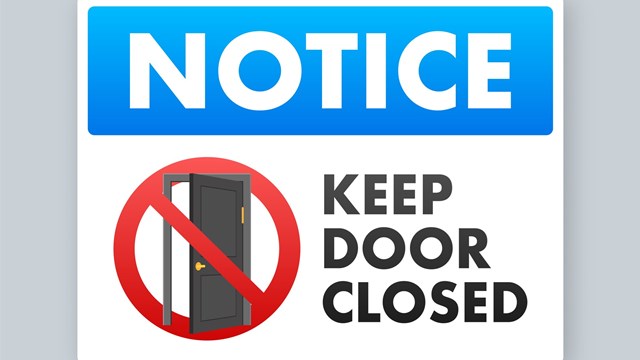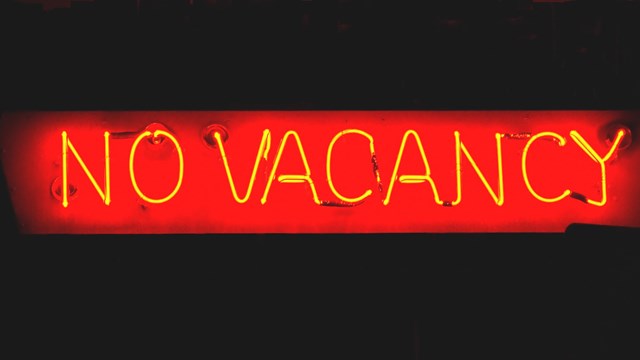Since their insurgence over the last dozen years, Airbnb, Homeaway/VRBO and other home-sharing sites using a similar model have provided travelers all across the globe with alternative—often more affordable—accommodation to hotels, motels, inns, and B&Bs. The home-sharing model certainly has been an economic boon to budget-seeking travelers, locales with weak tourism, and property owners who use the services as an income stream. In many cases, however—particularly in larger cities in the US —renting out one’s home on a short-term basis (typically anything less than 30 days) is actually illegal. In cities like New York and its surrounding municipalities, laws precluding these types of transactions have been on the books for years; other cities have recently passed or are in the process of passing laws that are essentially reactions to the deleterious effects of home-sharing on city budgets, community character, gentrification, housing scarcity, and residential safety.
Share and Share Dislike
Like with many of the titans of the so-called 'share economy'—ride-sharing services like Uber and Lyft; office-shares like WeWork—the practical application of home-sharing has shifted from a literal 'share' to something less personal, and more transactional. Just as the car-share model has morphed from hitching a ride with a fellow commuter to basically hailing a private livery service, the typical home-share is not of the 'stay in my spare bedroom for a week' variety.
Just to give an example using the app’s biggest domestic market, according to Inside Airbnb, an independent, non-commercial set of tools and data intended to show how Airbnb is really being used in cities around the world, 51.8% of New York City’s approximately 50,000 Airbnb listings are for an entire home or apartment—and 34.1% are hosts with multiple listings (which can be multiple rooms in one home or apartment, or multiple entire apartments or homes). These data points indicate that a majority of hosts in NYC are not in occupancy when renting their rooms or apartments – which puts them in violation of the state’s Multiple Dwelling Law, the New York City Administrative Code, the New York City Zoning Resolution, and most likely the host’s own proprietary leases or condo declarations.
Therefore, residents of multifamily housing thinking of making their homes available for 'share' would do well to review their building or association’s policies first. Indeed, most co-ops forbid subletting altogether; others impose restrictions on how long a shareholder can sublet, or set durations for shareholder occupancy before the unit can be sublet, or both. Even where subletting is permitted, the bylaws dictate lease and renewal terms—usually one year at minimum—and require that all occupants be interviewed by a screening committee and approved by the board of directors.
Condos are following suit, adds Todd M. Ross of One Point Brokerage, a commercial insurance brokerage based in Manhattan. “We have also seen new condo buildings put prohibitions in their governing documents on unit owners renting units out for less than a period of one year. This gives them more leverage over any short-term rental issues that arise from unit owners.” Most condominium associations already forbid leases shorter than 30 days, and many have application procedures that are as labor- and fee-intensive as those of co-ops.
Stranger Dangers
While they may seem onerous, these provisions exist to protect the corporation or association and its owner-shareholders' economic interests, comfort and quality of life, and safety. Airbnb and its ilk upend these protections, putting buildings and communities at risk on a number of fronts.
For one thing, says Dean M. Roberts, Esq., an attorney with the law firm Norris McLaughlin, which has offices in New Jersey, New York, and Pennsylvania, if owners and shareholders are opening their units to a constantly rotating parade of short-term renters, “There's no control over who's coming in and out of the building”—a clear tax on (if not a collapse of) building security. Most buildings or associations have an established procedure for guest access, whether that be signing in with a doorman, acquiring entry through an intercom, or presenting identification to a security guard. Airbnb guests who stay in a home without the owner or shareholder in residence avoid these procedures, and could be seen as trespassers if neighbors, management, or security personnel aren't aware of the arrangement. (The same is true even for friends or extended family of an owner or shareholder, by the way. That is, if you are inviting your college roommate to stay in your apartment while you are away on a long vacation, you risk violating your proprietary lease and endangering your neighbors—which may prompt them or your board to refer the matter to authorities. So it pays to reach out to your board or management before you pack your bags!) All those safety and security measures that are in place to protect you and your belongings—and, which, not incidentally, you pay for through your common charges—are being short-circuited any time someone stays in your unit without your presence.
Also, with random people who aren't privy or beholden to the house rules of a building or association roaming around the property, “The potential for downside is considerable,” says Roberts. Airbnb-type 'guests' not only bypass the normal vetting procedures to which all other residents submit; they are also less informed (if not totally ignorant) about emergency procedures, important contacts, neighborhood or building idiosyncracies, or even where to put their garbage. This poses any number of risks, not only to the short-term renters themselves, but also to the legal residents, their proper guests, staff, and visitors, as well as the building’s own staff and contractors.
Additionally, consider the disparities in behavior and 'street smarts' between a vacation traveler and a full-time resident: travelers tend to come and go at irregular hours, carry cash and valuables, have fewer local connections, drink or party throughout the day, and don’t have the lay of the land—all making them more likely targets (or even perpetrators) of criminal activity.
Although the probability of something really awful happening to, or as a result of short-term renters is relatively low, Roberts warns that “when it goes bad, the potential is for it to go very bad.” And when it does, lack of industry regulation, added to homeshare platforms' vulnerability to abuse and fraud (and worse, in some cases) makes it difficult for the aggrieved to find recourse or solutions. Homeowners’ and renters’ insurance providers typically deny any coverage for commercial activity in the home—including short-term renting—and sites like Airbnb have opaque policies that can make filing claims or determining liability more difficult, even if they offer supplementary coverage. So when things do go bad (or very bad), liability falls squarely on the owner.
That's not to say that there aren't insurance ramifications for the co-op or condo association as well. According to Ross, “[W]e have run into situations where a carrier has not renewed a co-op/condo's policy, or has declined to give them a quote because the building has open violations or suits against it due to allegations that the building [is renting] units out on Airbnb, et cetera.”
In some cases, these co-ops and condos must then turn to non-state-admitted insurance carriers, who may offer quotes with specific exclusions or very high deductibles so that any fines or claims associated with the activity are not covered. And who pays then? Since the building or association’s insurance costs are paid through common charges, that burden falls on all the other shareholders or unit owners – whether they were involved in the activity or not.
Fighting a Goliath
The homesharing platforms themselves aren't going down without a fight, of course. Cities across the country are facing legal and lobbying challenges to their attempts to curb (or at least regulate) short-term renting. For example, a referendum on the November 5 ballot in Jersey City put it to voters to decide whether a city ordinance imposing certain restrictions on short-term renting would stand. Airbnb—which predictably opposed the measure, and has a projected valuation of $38 billion—came ready to fight, plugging over $4 million into efforts to sway voters to their side. In spite of Airbnb's big spend and PR campaign, residents of Jersey City passed the referendum by a large majority: 68.7%.
The city of Boston has also been engaged in a legal battle with Airbnb over the course of this year after it passed an ordinance requiring short-term rentals to register with the city and pay the same 5.7% state tax imposed on hotels. In that case the parties settled, agreeing to a new requirement that all short-term rental listings display a city-formatted registration number by December 1, 2019, and Airbnb agreeing to share data about listings with the city.
Fine, Fine Me
Of course, to the average 'host,' the potential income from short-term renting may outweigh all these risks—particularly when their own safety is not so much in jeopardy if they are not even staying in the unit or building with their 'guests.' The fines imposed by co-ops, condos, and municipalities usually do not come close to what someone can earn in the share-osphere. That is why cities and towns are installing fining structures that escalate or accrue based on the number and duration of violations.
Chicago, for example, can impose fines of $1,000 to $3,000 per day, and requires specific licensing and registration for any short-term listing or platform. Miami has strict licensing parameters, and has steeply escalating fines of $100 for the first violation, $1,000 for the second, and $2,500 for the third. Miami Beach goes even further, imposing the highest fines for illegal short-term rentals in the country: $20,000 for the first violation, $40,000 for the second, $60,000 for the third, $80,000 for the fourth -- and a whopping $100,000 for each offense thereafter (at least for now— an October Miami-Dade circuit court ruling struck down the ordinance’s fines as illegal and unenforceable; the city currently is appealing that decision).
Let’s Be Clear
There’s no doubt about it: an illegal home share can end up costing you and your neighbors in time, money, and headaches for years to come. So what can a building, association, or management company do to protect itself and its residents from the physical, social, and economic risks of home-sharing?
“The simplest answer,” says Roberts, “is to have a clearly stated policy, either in the house rules or on a policy letter to shareholders, that informs them just what the rules are; if it's allowed, if there's a procedure for doing it, and what that procedure is. And if it's prohibited, shareholders [should be] clear about this.” He cautions that wording is very important. For example, there is standard proprietary lease language that discusses occupancy by the shareholder that can be followed by and immediate family or or immediate family. “If it says ‘and,’” says Roberts, “it means the shareholder has to be [residing in the apartment with the other occupant(s)]. If it says ‘or,’ it means the shareholder doesn’t have to be there,” leading to all sorts of possible interpretations. “If you have a clear rule,” he continues, “it just makes the rest of the process so much easier.” Clear rules, clearly worded, communicated clearly. Adds Roberts, “In manufacturing, they call it ‘Six Sigma:' you do your quality control at the front end of the process, not the back end. And the returns are substantially greater.”
Darcey Gerstein is the Associate Editor and Staff Writer for The New Jersey Cooperator.







Leave a Comment